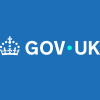
York U’s Safe Water Tool Triples Standard Practice Efficacy
TORONTO, Thursday, Aug. 20 – A new study finds a dramatic increase in safe drinking water when a machine learning-enabled tool created by York University researchers is used to optimize chlorination levels in refugee camp water supplies. Lead author Syed Imran Ali says that the new study shows that the Safe Water Optimization Tool (SWOT) vastly out-performs status-quo guidelines for safe water supply in humanitarian response.
“Our research found the SWOT can deliver safe drinking water at nearly three times the rate as compared to standard practices, adding to a growing body of evidence that shows it to be a highly efficacious tool in a variety of situations,” says Ali, director of the Humanitarian Water Engineering Lab at the Dahdaleh Institute for Global Health Research and an adjunct professor at the Lassonde School of Engineering.
“With humanitarian work being undertaken in increasingly challenging conditions and the system under immense financial strain, the demand for evidence-based solutions like the SWOT is growing.”
For the study, published in BMJ Global Health, the researchers analyzed routinely collected water-quality data from an active humanitarian response at the Kutupalong-Balukhali refugee settlement in Cox’s Bazar, Bangladesh where the SWOT had been implemented. They found that households following SWOT guidelines achieved safe water 90 per cent of the time, compared to 35 per cent with the status-quo universal guideline otherwise used in humanitarian response.
The study also found that in order for the intervention to have maximum impact, water monitoring teams and water treatment operations need to be integrated to find the optimized chlorination levels.
“The challenge is making sure that water system operators have the proper support to improve feedback between monitoring and water treatment.”
Other authors on the paper and fellow SWOT collaborators include machine learning lead Professor Usman T. Khan from Lassonde’s Department of Civil Engineering, Faculty of Health Associate Professor Tarra Penney, PhD candidate Mike De Santi, former Dahdaleh director Dr. James Orbinski, SWOT technical advisor Matt Arnold, SWOT data science specialist Syed Saad Ali, and Jean-François Fesselet with the public health department at Médecins Sans Frontières (MSF) Holland.
The SWOT is a free, open-source online tool that Ali developed after working as a water and sanitation specialist in South Sudan with MSF. Ali and colleagues discovered that universal water chlorination guidelines used widely in the humanitarian sector were built on faulty assumptions. They worked on creating a tool with fellow York researchers and MSF to help aid workers generate site-specific and evidence-based chlorination levels in refugee camps using just routine monitoring data. It has since helped provide safe water for more than 700,000 people globally. This includes recent collaborations in Yemen and Gaza, where Ali says there are extreme operational challenges, and Uganda, where Ali firsthand witnessed the effects of recent dramatic U.S. government cuts to the humanitarian sector.
“Basic humanitarian life support systems, across the world, are degrading very quickly and the sector is operating under extremely challenging conditions,” says Ali. “There’s a pressure now, with reduced resources, to ensure interventions are evidence-based and demonstrably effective, and that’s exactly what the SWOT does for safe water systems.”
https://www.yorku.ca/news/2025/08/21/york-led-safe-water-tool-nearly-three-times-more-effective-than-standard-practice-new-study-finds/


